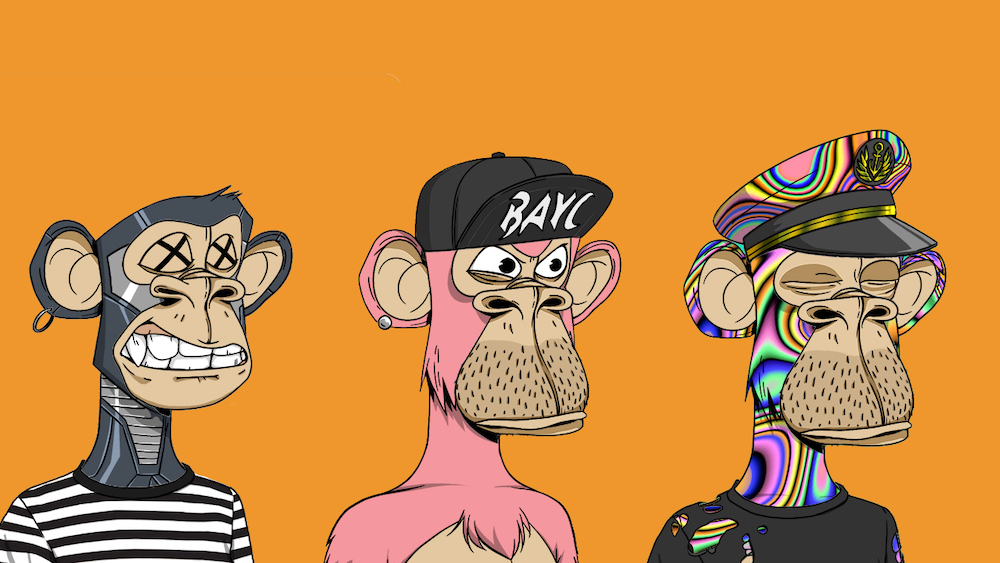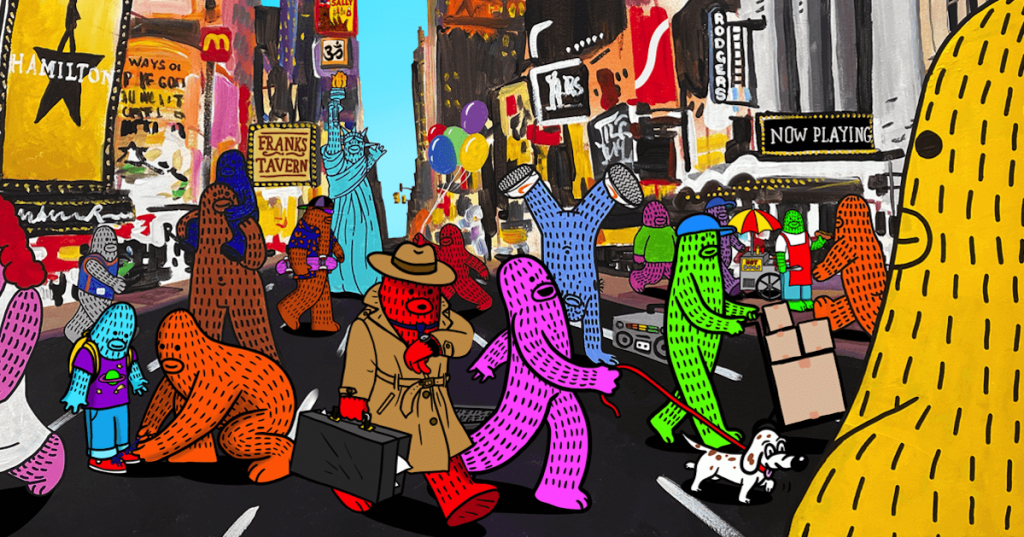The inside chatter goes like this: Regulators want to do something about NFTs but can’t be clumsy in their approach.
The Financial Action Task Force (FATF) wrapped its early Halloween gift last week with some choice words for NFTs: They are not off-the-hook and should be regulated on case-by-case basis. As for the NFT platforms offering centralised services, dang, they fit the definition of a ‘virtual asset service provider’ like a glove! Looks like Halloween could be permanent.
A few crypto media outlets report that FATF can be disregarded as it is technically non-binding, which fail to understand how it works.
Especially when most of the respectable financial centers in Asia are FATF members and collectively account for over 90% of the region’s GDP.
What do regulators do?
AML-CFT oversight is a given, non-negotiable.
Beyond that? They prefer a ‘light touch’. NFTs are the meal ticket for struggling local artists. There is no point to pick a random whipping boy and slap on his wrists.
In terms of innovation, the collectibles market is going through a watershed that’s bigger than eBay and Etsy. How does it look to be the first regulator in South East Asia to clamp down on this?
Do they do nothing?
What is the read then? Instead of harping on whether NFTs are registered securities, regulators may go after the activities for marketing and trading! NFTs are marketed like “meme stocks”.
It is freakishly similar to the ICO playbook, switched from Telegram to Discord. Spam all the self-promotion channels, draw them to your server, sweeten the drop with pre-sale perks, shill until the cows come home.

Alice and Bob will be invited to buy something represented as an “up only” asset i.e., “investment”. They will get 5-10% royalties in perpetuity for minting, like investments. They are flooded with “probably nothing” posts, which go on to hype the new NFT collections coming soon. They see a lot of fake ‘shill bids’ going in and think these are hot buys.
Alice and Bob are not warned that there is no liquidity in the secondary market, where the typical sales count is either 0 (nil) or 1 on OpenSea; and that the market is over 80% dominated by whales, not the retail legions you’d expect in r/wsb and its Robinhoodies. Add this to the insider trading and wash trading that goes on every now and then.
Put on your wayfarer glasses and wait for what’s next.
How can NFTs count as ‘meme stocks’ though? While many NFT artworks are based on memes, it doesn’t have to an actual meme to be a ‘meme stock’. Gamestop is not a meme. Rather, it is the social media component and the activities surrounding it designed to rig and manipulate prices.
The regulator has a duty to maintain a ‘fair and orderly’ market. As well as a safe one too for public confidence given that scams are rife. NFT storefronts can be faked, including the collections on sale, right down to the human customer support you get!
Thailand has already banned meme stocks from exchanges since June this year — including NFTs! Its SEC notice describes meme tokens as having no clear objective or underlying substance and where price discovery is based on social media trends.
Other regulators in Singapore and Malaysia have alerted the public on pump-and-dump schemes (or ramp-and-dump as they are known in Hong Kong) particularly prevalent on social media.
Should you be concerned?

At first look, no. This is my unqualified and non-advisory opinion. Most NFT sellers are creators in good faith. They don’t profit much on net basis and are just happy to make the sale.
The real winners are the fee-gouging NFT platforms and the Ethereum gas station. There is no coordinated offloading and dumping action – ‘all pump but no dump’ – and it is not practical either in an illiquid market.
But at closer look, fraud elements could arise in some cases. Crime syndicates may be involved to lure and induce buyers with false statements. They will claim to be successful NFT experts and exploit information asymmetries.
We have seen ‘rug pulls’ by high profile NFT projects where the creators run away with the funds and tank the market. By the time you go and lodge a police report, it is already too late.

Meme stock trading will not be easy to prove, more so with the unregulated NFT subsector. Even the US SEC didn’t find malicious intent in the Gamestop saga. According to its staff report, although there were unusually large price moves, volume changes, shorting interest, and social media coverage, the market structure ultimately worked as it should. Smoke does not always mean fire.
Meanwhile there are much bigger fish to fry (or not). The Shiba Inu meme coin created last year has grown 90,000,000% in price (you read that right) and briefly surpassed Ethereum’s trading volume. Furthermore, the Squid Game coin surged 230,000%, only to crash 100% to near zero.
Featured Image: A fragment of 24 Hours in The City That Never Sleeps by Frank Ape. Credit: async.art
Also Read: I Got Rug Pulled and Scammed By A NFT Project, Here’s What I Learnt
[Editor’s note: This article does not represent financial advice. Please do your own research before investing.]
Interested in NFTs? Chain Debrief has just launched NFT Debrief on Instagram and Telegram.



































